He was also very practical and between a somewhat unhappy faction in the North of Katanga … and the likely military response by the central government, Tshombe needed troops to both protect his country and train his Army. The cost would be mining contracts. Belgium provided the troops and the firms paid taxes that ran Katanga’s government. Later, as Belgian troops were removed, mercenaries were acquired. Accusations of being a “puppet” meant nothing to Tshombe and his loyal followers… any other course and Katanga would not survive, according to Jules Gerard-Liboris, University of Wisconsin Press.
Third world countries often had come to independence with borders that had been set by colonial powers. These often did not reflect tribal, ethnic or religious boundaries. But once independent most third world countries (especially African) were determined to keep those borders, by (what would later come to be called) “ethnic cleansing” if necessary. Pressure quickly arose among third world nations to dismantle Katanga.
The U.N., under the leadership of Secretary Dag Hammarskjold, deployed “peacekeeping” forces ranging from an Ethiopian contingent to an Irish one. Some were high quality…some would cause even more trouble than some of the mercenary units.
The understanding among those sending contingents was that they would replace the Belgian troops in the area under the control of the central government, but would not enter Katanga as the secession was viewed by them (and at the time) by the Secretary General as an “internal affair” outside the mandate of the U.N.
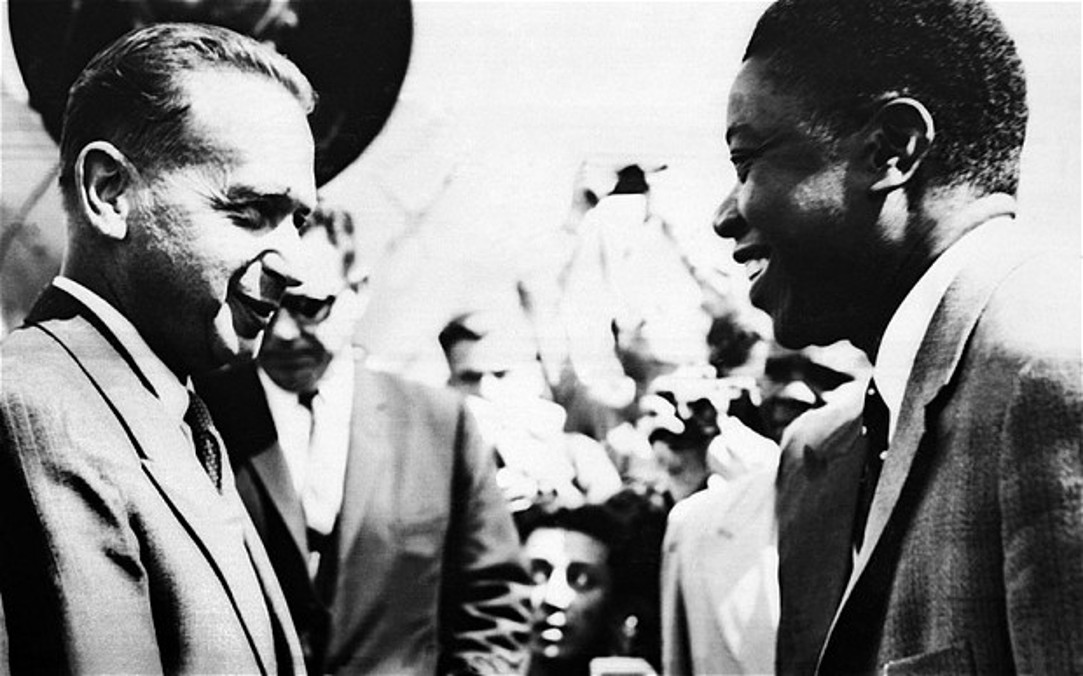
The Prime Minister of the Congo, Patrice Lumumba saw it differently. He led the largest nationalist faction and was not in the least enamored of the West. He called for assistance from the Soviet Union…who sent some military advisors and some other aid. In some Western capitals this suddenly was painted as a “Cold War” issue.
The involvement of the Soviets caused a split in the government between Lumumba and the President, Joseph Kasa-Vubu. Future long-term dictator General Mobutu staged a coup, kicked the Soviets out and became the real power. Lumumba was arrested and later murdered. Most rumors favored Belgium behind the action…with some prodding by the CIA. Tshombe, who had been democratically elected, pointed to these events as why Katanga had no desire to be part of the Congo.
Hammarskjold would be described by most who knew him as honest, efficient, hard working and diligent. Others might ali “a monkish commitment” (he was not married), and a reckless determination to see the world through rose colored glasses.
In some ways Hammarskjold’s optimism could (in later years) put one in mind of Jimmy Carter. His attempts to be “even handed” often appeared to many in the West as an inability to differentiate between the arsonist and the firefighter.
Whether through lack of patience or guilt over not giving Lumumba the aid that he asked for… Hammarskjold got the U.N. to agree to more authority… that he then used far beyond what that body had envisioned. Authority to arrest mercenaries wherever found resulted in operations being staged into Katanga… (“Rum-punch,” followed by “Morthor”).
The second operation was intercepted by Katanga gendarmes and an Irish company was pinned down and essentially taken as prisoners of war. Many countries that had provided contingents were threatening to pull out… feeling that the mandate had been abused.
After Tshombe’s efforts at negotiations with the central government went nowhere, Hammarskjold invited Tshombe to one on one talks. They had met earlier and while Hammarskjold was personally impressed with Tshombe, the Secretary’s demands to him had been impossible. Meeting in Katanga was not politically possible for Hammarskjold and meeting in central government area of control was far too dangerous for Tshombe.
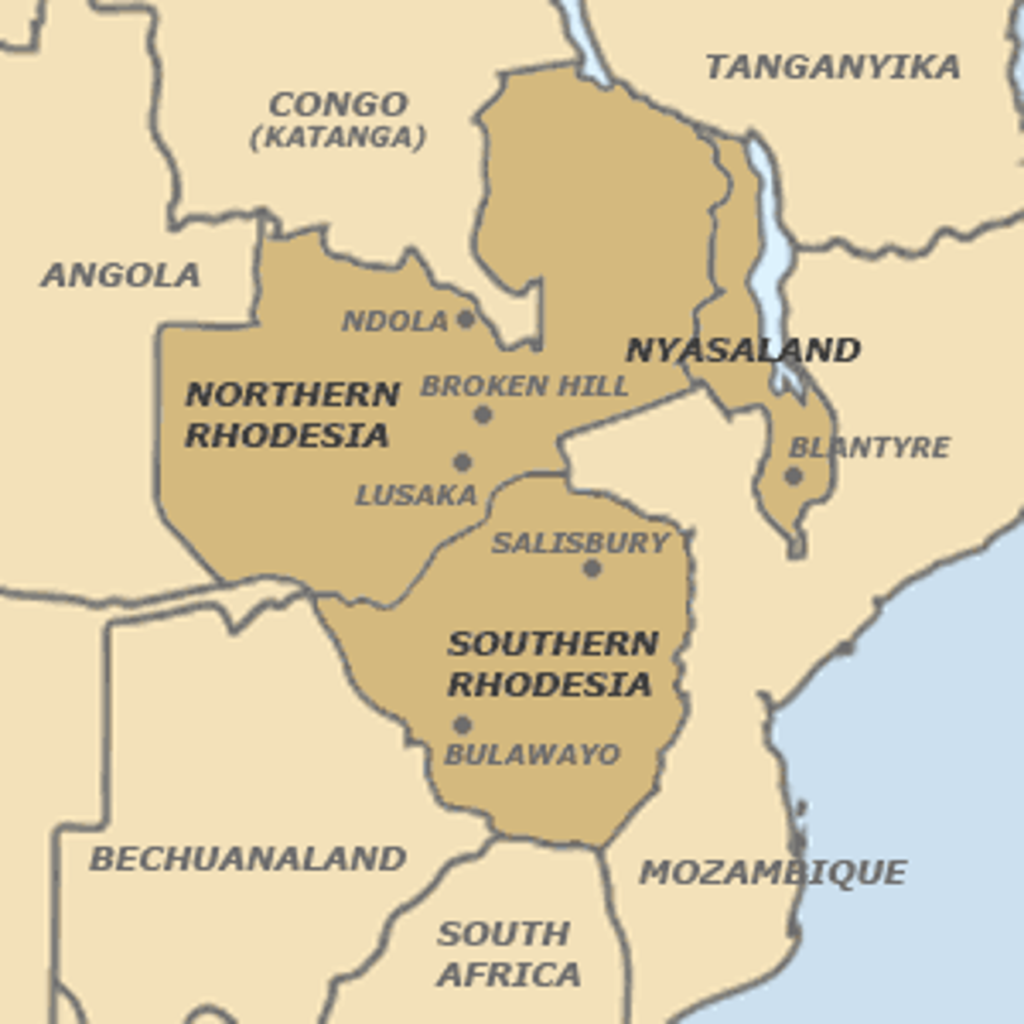
It was decided that they would meet just south of the Katanga border at Ndola…a small town in Northern Rhodesia (now Zambia…) Hammarskjold would fly in a Swedish owned DC-6 flown by a Swedish crew. A total of 15 people would be on board.
The plane flew at night and was heard discussing approach procedures when contact stopped. A senior British authority who “just happened to show up” indicated that Hammarskjold “…probably changed his mind and decided to have the flight return to point of origin…”
The next day the aircraft was found crashed and burned. Two members of the party found outside the remains of the plane without burns… Hammarskjold, who was dead… and Sergeant Harold Julien, U.S. Army, the head of the Secretary’s security detachment. Julien had regained consciousness and was expected to recover from “minor” injuries… but died six days later.
A Swedish officer who showed up later recalled seeing what appeared to be a relatively small bullet hole in Hammarskjold’s head… as if he had been shot after leaving the wreckage. (Tribal Africans claimed to have seen a couple of vehicles approach site long before authorities arrived…) The hole did not show in autopsy photo. Swedish officer always wondered if he was mistaken… or if the photo was airbrushed…
………………………………………………………………
The above is as much as I knew in 1976 when I flew to Rhodesia. During the two years that I was there I heard much speculation about what had happened to Hammarskjold…and why…from people a generation older than me. Nothing concrete…just talk. I did learn that the British South Africa Police (BSAP) were entirely capable of deciphering useful testimony from tribal Africans.
While there I read up on the investigation that took place shortly after the crash. It appeared to have been a cover-up. That doesn’t mean that those who were covering up were necessarily guilty parties… Lots of covering up during the Warren Commission hearings was done by people with their own “dirty laundry” to cover up as well as those that had little to do with the assassination.
The FBI and the CIA intentionally misled the Commission. They had monitored Lee Harvey Oswald in the months before the assassination, but both agencies later tried to downplay their knowledge of him to the Warren Commission. Oswald had once even left a threatening note for an FBI agent at the Bureau’s office in Dallas. Fearful of catching blame for not preventing the assassination, the FBI later destroyed the note and even removed the agent’s name from a typewritten transcript of Oswald’s aliress book provided to the Warren Commission. Congressman Hale Boggs would later say that FBI Director J. Edgar Hoover “lied his eyes out” to the Commission’s investigators……….
Evidence also suggests that the CIA had Oswald under surveillance when he made a trip to Mexico in September 1963 and visited the Cuban and Soviet embassies, but the agency repeatedly denied any connection to the alleged shooter. The CIA also neglected to inform the Commission about its many covert operations in Cuba- including several schemes to assassinate Fidel Castro—even though those revelations might have helped shape the investigation (1.).
Then a couple of years ago I heard that the U.N., at the request of Sweden, had decided to open a new investigation. A writer had researched the subject and the Oxford Press had published it. The book stirred up some interest (2.).
The writer, Susan Williams, a senior research fellow at the Institute of Commonwealth Studies at the University of London did some major research, including private papers of some deceased major players.
I don’t propose to review her book, but I do have some observations. She refers to all guerrillas as “freedom fighters” and has some comments that shows something of her opinions. A funeral in 1961 and newspaper comments on both white and black soldiers being present. She finds that “typical of the racist attitudes…” yet today we have news stories about female soldiers present along with male, reflecting a change of attitudes.
A comment that the vast majority of the people in the Rhodesian Federation were black, but that the investigating board was white. True, and if the plane had gone down in the deep South (or just about anywhere else in the U.S.) in 1961 the investigating board would have also been white.
She saw little difference between Rhodesia and South Africa. Not the same…there was a reason that police in South Africa routinely carried guns in cities and Rhodesian police did not until 1977… the worst of the bush war. (Segregation could easily be found in some U.S. states in 1961.)
The Rhodesian Federation (Southern and Northern Rhodesia and Nyasaland… now Zimbabwe, Zambia and Malawi) sent troops to the Congo border in order to prevent any “spillover” of violence. Among the units sent she lists: “The elite all-white Selous Scouts with 12 armoured cars left Bulawayo on a special troop train…” (Page 52, Kindle)
Some justifiable confusion on her part regarding this last bit. The “elite” Selous Scouts were a creation of the 1970s and were the “tip of the spear” at the “sharp end” in the Rhodesian bush war. From 50-80% of the unit was black and had nothing to do with armoured cars.
The armoured car unit of the Federation deployed to the Congo border was a descendant of a WW2 outfit and at that time bore the name “Selous Scouts…” The name later transferred to the elite tracker-commando group.
But enough quibbling. Actually, I was very impressed with her book. Some serious scholarship and research, and there is a huge difference between a touch of bias and pumping out propaganda… which she was not. She acknowledges that Tshombe was not a puppet, that Hammarskjold was impressed with him and that Katanga was a substantial entity.
Going farther, she was appalled at the U.N. “hearing” that followed the Federation one not long after. A chance for the truth to out, but the U.N. compelled nobody to show up or testify, and did not require that anybody who did testify be sworn in. I agree with most of her conclusions.
She does go into some “distant possibilities” in the last parts of her book… groups and individuals who have made claims (usually dubious…) But her core work is where the meat is.
The amount of time that passed between the plane going missing and the many hours after dawn… that it took to find… even though on an expected approach pattern. The handling of the scene. The “discarding” of native witnesses.
The sole survivor’s statement at the crash site that indicated that the aircraft was shot down was dismissed as “…induced by pain killer…” when the doctor who administered the drug flatly insists that the Sergeant spoke before receiving the injection.

“The only survivor among the 15 people on board the DC 6 was Harold Julien, an American sergeant on Hammarskjöld’s security detail. The official report said he died of his injuries, but Mark Lowenthal, a doctor who helped treat Julien in Ndola, told Björkdahl he could have been saved.
“I look upon the episode as having been one of my most egregious professional failures in what has become a long career,” Lowenthal wrote in an email. “I must first ask why did the US authorities not at once set out to help/rescue one of their own? Why did I not think of this at the time? Why did I not try to contact US authorities to say, ‘Send urgently an aircraft to evacuate a US citizen on secondment to UN who is dying of kidney failure?'” (3.)
The sole survivor to the death of 15 people…including the Secretary General of the United Nations… and they dump him at a fourth rate hospital for native farm workers. Supposedly he was fit to be transferred once his broken ankle tended to. But he was left there for six days until he died of kidney failure?
Why wasn’t he flown out to Salisbury? The U.S. military had air assets within reach. Were they ever notified? Information on him was very hard to find and I only got a decent image by going to a Swedish web site.
The “official” hearing in Salisbury was a stacked deck. “The train was going to run on time…” The findings were decided before any evidence was testified to. Anything that pointed towards an attack was explained away. Autopsy findings never brought out… only a “summary…”
Black African comments dismissed because of “lack of technical sophistication and familiarity with aircraft…” One of the prime black African witnesses “discarded” had served with the British Army in North Africa as a signalman and was more than qualified. Even tribal Africans nearby watched aircraft fly in and out of the nearby airfield all the time.
The BSAP was very used to dealing with testimony from black Africans… ranging from tribal members to partially and fully detribalized ones who occupied cities and towns. Useful testimony was available.
From early on the suspicion was that if the plane had been shot down the pilot who did it was Jan van Risseghem…born in Germany, served in the Belgian, South African, and Rhodesian air forces, and commanded the small Katanga mercenary air force. Western police agencies and governments never attempted to so much as interview him. He died in Belgium in 2007.
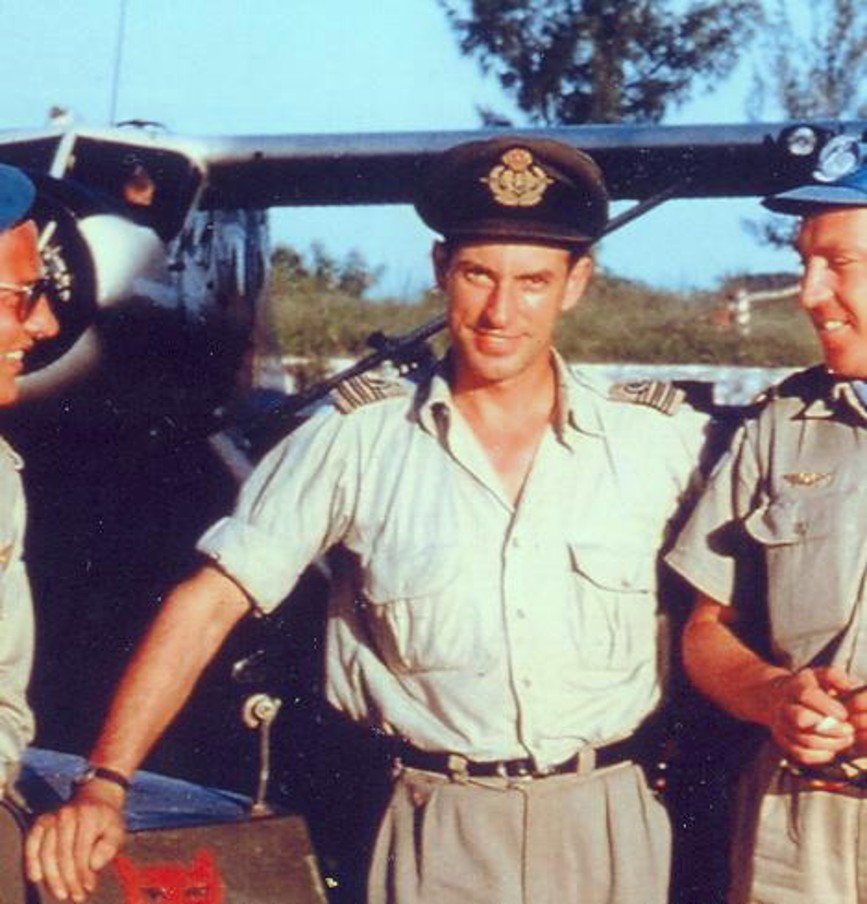
Why the cover-up? It wasn’t incompetence. If indeed an accident, their whitewash would always leave serious doubt. Hard to say more than half a century later. Might be as simple as embarrassment that it happened on their turf.
The British certainly were not happy with Hammarskjold… but hard to believe that they’d order a “hit…” On the other hand, they might have known or at least suspected who did. One possibility was some major mining concerns that had powerful political connections in London. If they were implicated, even an “innocent” British government might fall.
Accident or assassination, there is no doubt that there was an endless amount of motive and opportunity and suspects. A full investigation should have taken place and did not.
Aside from the years that have passed and the people that have died, a major problem is the sheer number of possible suspects: governments, intelligence agencies operating on their own hook, international mining concerns, rogue operators. Doubtless a lot of “Will no one relieve me of this troublesome priest?” type conversations had gone on in the Congo and elsewhere.
Oliver Stone could make a film about these events… but his style would be to imply that “everybody” (including the Dallas Police Force) was involved.
Former U.S. President Harry S. Truman commented that Hammarskjold “was on the point of getting something done when they killed him. Notice that I said ‘when they killed him.'” Truman would not comment further. (4.)
On 4 April 2014, Julian Borger, diplomatic editor of The Guardian, reported that a newly declassified 1961 cable called for the grounding of a Belgian mercenary (Jan van Risseghem) hours after the UN Secretary-General’s aircraft crashed in Africa:
- Hours after a plane carrying the UN Secretary-General, Dag Hammarskjold, crashed over central Africa in September 1961, the US Ambassador to Congo sent a cable to Washington claiming that the aircraft could have been shot down by a Belgian mercenary pilot.
- In the newly declassified document, the Ambassador, Ed Gullion, does not directly implicate the Belgian or Rhodesian governments in what he calls “this operation,” but calls for US pressure on them to ground the mercenary, aliing it was “obviously a matter of highest importance.” He said the pilot had been hampering UN operations and warned that if not stopped “he may paralyze air-rescue operations.”
- The document was released after an international panel of retired judges called last year for a fresh inquiry into the Hammarskjöld crash, saying that new evidence “undoubtedly” existed. The UN Secretary-General, Ban Ki-moon, decided in February to put the panel’s findings on the agenda of the UN General Assembly.
- The Gullion cable was not seen by previous official inquiries. A commission formed by the Rhodesian colonial authorities blamed the crash on pilot error, while a later UN investigation recorded an open verdict.
- Earlier, it was determined that at least one U.S. listening station heard a broadcast “consistent with an air attack” that night.
- NOTE: While Southern Rhodesia was the lead player, it was only part of a Federation of three countries. Southern Rhodesia, a conservative government that was later replaced by Ian Smith and his followers… who had no involvement in the above events… The senior authority at that time was the British government.
- -Yankee Papa-
Suggested Reading:
- http://www.history.com/news/history-lists/9-things-you-may-not-know-about-the-warren-commission
- http://www.amazon.com/Who-Killed-Hammarskjold-Supremacy-Africa/dp/0190231408
- http://www.theguardian.com/world/2011/aug/17/dag-hammarskjold-un-secretary-general-crash
- Jamie Doward The Guardian 13 December 2014.

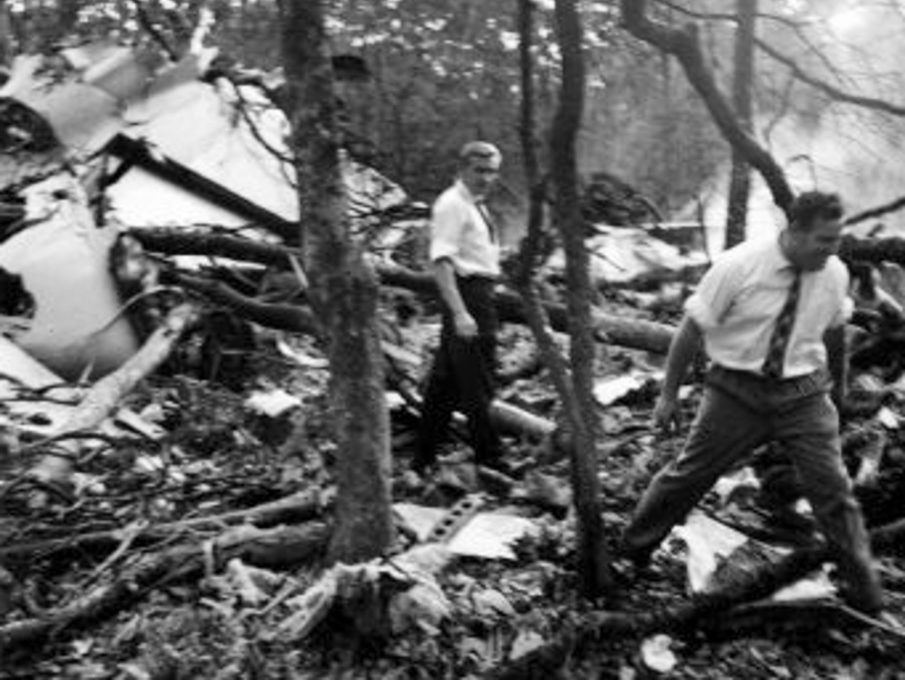
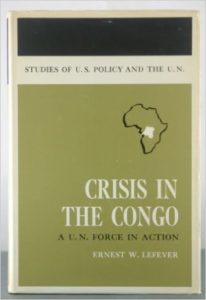
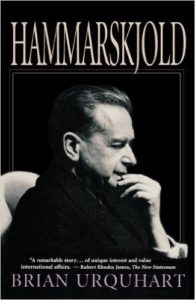
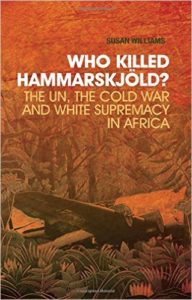
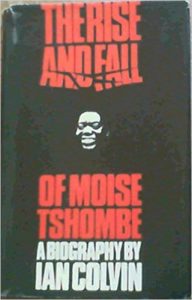








COMMENTS